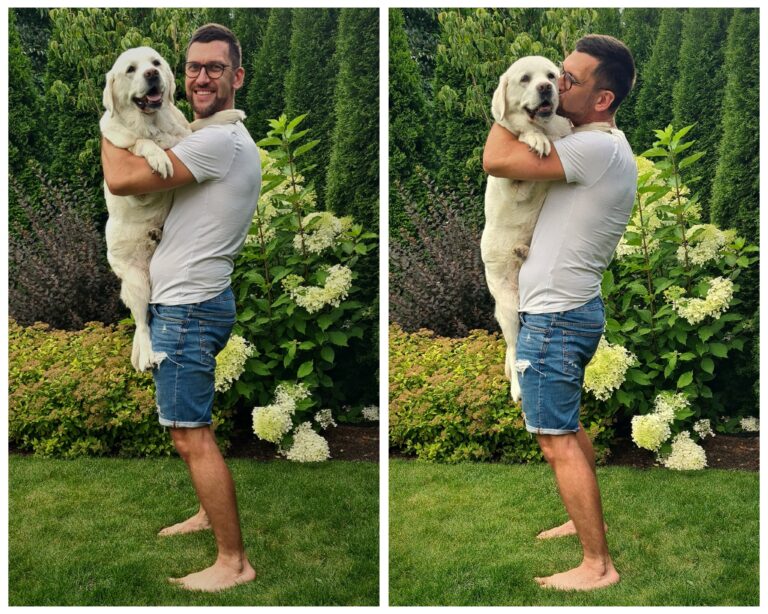How Does Responsibility OCD Manifest?

Let’s talk about Responsibility OCD – a type of OCD that messes with people’s everyday lives. It’s not your typical OCD, and it can make folks feel like they’re carrying the weight of the world on their shoulders.
In this article, we’re going to dig into what makes Responsability OCD tick, how it messes with thoughts and actions, and, most importantly, how to cope with it.
Join us as we unravel the ins and outs of this tricky mental health issue and figure out ways to deal with it.
What is Responsibility OCD?
Responsibility OCD, or ROCD, is a subtype of obsessive-compulsive disorder (OCD) where individuals experience distressing and intrusive thoughts related to responsibilities.
People with ROCD often have intense fears of making mistakes or being negligent, leading to excessive checking and reassurance-seeking behaviors.
This condition can significantly impact daily functioning, relationships, and overall well-being as individuals struggle with the constant need to ensure they haven’t overlooked something crucial or caused harm.
It’s important to note that ROCD is a recognized mental health condition, and seeking professional help can be beneficial in managing its OCD symptoms.
What Causes Responsibility OCD?
The exact cause of ROCD (also called Responsibility OCD) is not fully understood, but it is generally believed to result from a combination of genetic, neurological, and environmental factors.
Genetics may play a role, as individuals with a family history of Obsessive Compulsive Disorder or related disorders might be more susceptible. Neurologically, imbalances in certain neurotransmitters, like serotonin, could contribute to the development of OCD, including Responsibility OCD.
Environmental factors, such as stressful life events or trauma, may also trigger or exacerbate symptoms. Additionally, certain cognitive patterns, like a heightened sense of responsibility and a fear of making mistakes, may contribute to the development of Responsibility OCD.
It’s important to recognize that the causes are complex and varied, and each individual’s experience may differ. Seeking professional help, such as therapy or counseling, can assist in understanding and managing the specific factors contributing to Responsibility OCD.
Types of Responsibility OCD

Checking OCD
Individuals with Checking OCD might repeatedly verify that doors are locked, appliances are turned off, or tasks are completed.
For example, someone may feel compelled to check the stove multiple times before leaving the house, fearing a potential fire if they overlook this inflated responsibility.
Moral Responsibility OCD
Those with Moral Responsibility OCD may experience intrusive thoughts that challenge their moral beliefs.
For instance, someone might worry excessively about accidentally causing harm (known as harm OCD) to others, leading to compulsive behaviors such as avoiding certain situations to prevent perceived moral transgressions.
Health Responsibility OCD
Health Responsibility OCD may manifest in fears of contaminating oneself or others.
An individual might engage in excessive handwashing or avoid specific foods to prevent perceived health risks.
For instance, someone may constantly worry about spreading germs, leading to meticulous hygiene rituals.
Relationship Responsibility OCD
Individuals with Relationship Responsibility OCD may harbor intense fears of unintentionally hurting their loved ones emotionally.
This could result in compulsive behaviors like seeking constant reassurance or avoiding certain topics to prevent potential harm to the relationship.
Work or Academic Responsibility OCD
Work or Academic Responsibility OCD may involve a heightened fear of making mistakes in professional or academic settings.
An individual might excessively check work, re-do tasks, or seek constant validation to avoid the perceived consequences of falling short in their responsibilities.
Parental Responsibility OCD
Those with Parental Responsibility OCD may have obsessive fears about their ability to care for their children.
This could lead to compulsive behaviors such as repeatedly checking on the child during the night or being excessively vigilant about potential hazards to ensure the child’s safety and well-being.
What Types of People Develop Hyper Responsibility OCD?

Genetic Predisposition
While there’s a genetic component to Obsessive Compulsive Disorder , including Hyper Responsibility OCD, it’s important to note that having a family history of these conditions doesn’t guarantee an individual will develop them.
However, a genetic predisposition may make some individuals more vulnerable, emphasizing the role of both genetic and environmental factors in its development.
Personality Traits
Certain personality traits, such as perfectionism and an elevated sense of responsibility, might create a fertile ground for Hyper Responsibility OCD.
Individuals who are highly conscientious and fear making mistakes may find themselves particularly challenged by intrusive thoughts related to responsibility.
Life Stressors
Major life stressors, be it traumatic events, significant life changes, or chronic stress, can act as triggers for Hyper Responsibility OCD.
Stressful situations may exacerbate existing tendencies and contribute to the emergence of obsessive thoughts and compulsive behaviors related to feel responsible.
This also applies to other anxiety disorder(s) that typically have a negative outcome on individuals.
Neurobiological Factors
Neurotransmitter imbalances, particularly involving serotonin, are associated with Obsessive Compulsive Disorder.
While the exact mechanisms are not fully understood, these imbalances may play a role in the development of Hyper Responsibility OCD, affecting how the brain processes information and manages anxiety.
Environmental Influences
Growing up in an environment that places a strong emphasis on responsibility, morality, or achievement can shape an individual’s beliefs and behaviors.
High expectations or rigid standards within the family or cultural context may contribute to the development of Hyper Responsibility OCD.
Previous Mental Health Conditions
Individuals with a history of anxiety or mood disorders may be more susceptible to developing Hyper Responsibility OCD.
The interconnected nature of various mental health conditions means that addressing one aspect of mental health may positively impact others, highlighting the importance of comprehensive mental health care.
Understanding these factors can provide insights into the development of Hyper Responsibility OCD, but it’s crucial to approach each case individually.
Seeking professional help can aid in identifying personal risk factors and developing tailored strategies for managing hyper Responsibility OCD.
How To Stop Responsibility OCD
Managing and alleviating inflated Responsibility OCD symptoms often involves a combination of therapeutic approaches and coping strategies.
Here are some general suggestions that may help:
Therapy
- Cognitive-Behavioral Therapy (CBT): CBT, especially Exposure and Response Prevention (ERP), is a well-established therapeutic approach for Obsessive Compulsive Disorder. It involves gradually exposing individuals to intense anxiety-provoking thoughts or situations and preventing the accompanying compulsive behaviors.
- Mindfulness-Based Cognitive Therapy (MBCT): Mindfulness techniques can help individuals observe their thoughts and inflated sense without judgment, reducing the emotional intensity associated with intrusive thoughts and obsessive compulsive symptoms.
Medication
- Selective Serotonin Reuptake Inhibitors (SSRIs): These antidepressants are commonly prescribed for OCD. They can help regulate neurotransmitter levels in the brain and alleviate symptoms. Consult with a psychiatrist for personalized medication recommendations.
Self-Help Strategies
- Mindfulness and Relaxation Techniques: Practices such as deep breathing, meditation, and progressive muscle relaxation can help manage anxiety associated with Responsibility OCD.
- Set Realistic Goals: Break down tasks into smaller, manageable steps. Setting realistic goals can reduce the overwhelming nature of responsibilities and minimize the need for over researching unlikely threats.
Establishing Routines
- Structured Daily Routine: Establishing a consistent daily routine can provide a sense of predictability and control, helping to manage anxiety associated with responsibility.
Limiting Reassurance-Seeking Behaviors
- Gradual Reduction: If you tend to seek reassurance from others, work on gradually reducing this behavior. Over time, this can help break the cycle of dependence on reassurance.
- Learn about OCD: Understanding the nature of OCD and Responsibility OCD can empower individuals to challenge irrational thoughts and better navigate their symptoms.
Support Network
- Share with Trusted Individuals: Open up to friends or family about your struggles. Having a supportive network such as online ocd support groups can provide understanding and encouragement.
Remember that seeking professional help is crucial. A mental health professional, such as a therapist or psychiatrist, can provide personalized guidance and develop a treatment plan tailored to your specific needs.
Final Thoughts on Responsibility OCD
In summary, tackling Responsibility OCD requires a comprehensive approach. Blend evidence-based therapies, such as Cognitive-Behavioral Therapy, with self-help strategies like mindfulness.
Embrace a structured routine, set realistic goals, and gradually reduce reassurance-seeking behaviors. Seeking professional help is crucial for personalized guidance and potential medication support.
By fostering understanding and compassion, we empower individuals to navigate the challenges of Responsibility OCD and work toward a more manageable and fulfilling life.





